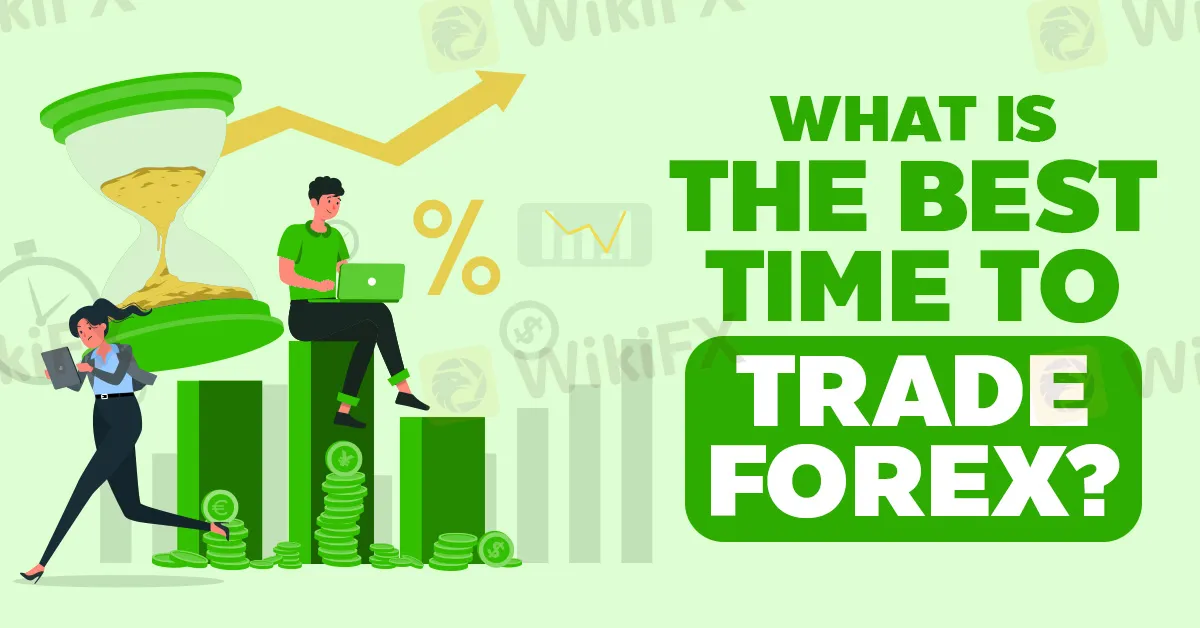简体中文
繁體中文
English
Pусский
日本語
ภาษาไทย
Tiếng Việt
Bahasa Indonesia
Español
हिन्दी
Filippiiniläinen
Français
Deutsch
Português
Türkçe
한국어
العربية
What is The Best Time to Trade Forex?
Abstract:Diving into the intricate world of foreign exchange (forex) trading, understanding the pivotal role of timing becomes paramount in capitalizing on the ever-shifting currency markets.

The foreign exchange (forex) market is a dynamic arena teeming with opportunities for traders looking to leverage currency fluctuations. But timing is key to success in forex trading. The market's activity and volatility vary during the day and across regions. Understanding these dynamics can significantly boost trading strategies and increase the odds of profitable outcomes.
Unlike stock exchanges, the forex market runs non-stop—24 hours a day, five days a week—across various time zones. This global nature lets traders worldwide join in, ensuring a continuous flow of liquidity. However, the market's activity and volatility fluctuate throughout the trading day due to factors like overlapping financial centres and economic news releases.

Peak trading periods occur when major financial hubs overlap, leading to increased liquidity and volatility—prime conditions for traders:
London-New York Overlap: Happening from 8:00 AM to 12:00 PM EST (1:00 PM to 5:00 PM GMT), this is the most active trading time. The merging of these global hubs brings substantial liquidity and volatility, offering ample chances for profitable trades.
Sydney-Tokyo Overlap: Occurring from 12:00 AM to 4:00 AM EST (5:00 AM to 9:00 AM GMT), this overlap isn't as active as London-New York but still presents opportunities, especially for traders eyeing news releases from Asia.
While the London-New York overlap boasts the highest trading volume and volatility, it demands more expertise and risk tolerance. Traders should weigh their risk appetite and experience when choosing the best trading times for their strategies.
Apart from overlapping financial centres, other factors affecting forex market activity and volatility include:
Economic News Releases: News and data from major economies significantly impact currency prices, creating trading opportunities through volatility spikes.
Geopolitical Events: Political events like elections or conflicts can cause market turbulence and volatility, offering chances for traders to capitalize on price movements.
Choosing the optimal trading time in forex depends on individual strategies, risk tolerance, and personal situations. Some prefer the bustling London-New York overlap, while others opt for the calmer Sydney-Tokyo window.
Effectively navigating the forex market requires a profound understanding of market dynamics and trading times. By recognizing peak trading periods, considering volatility and liquidity, and aligning trading times with strategies, traders can enhance their success in this dynamic financial landscape.

Disclaimer:
The views in this article only represent the author's personal views, and do not constitute investment advice on this platform. This platform does not guarantee the accuracy, completeness and timeliness of the information in the article, and will not be liable for any loss caused by the use of or reliance on the information in the article.
Read more

IG Group Enters Direct Investment Market with £160 Million Freetrade Buyout
IG Group, a prominent global financial trading and investment company, has announced its acquisition of Freetrade, a commission-free investment platform, for £160 million. The deal, funded through IG’s existing capital resources, marks a strategic move to expand its footprint in the United Kingdom.

Cinkciarz.pl Under Fire: Frozen Accounts, Missing Funds
Cinkciarz.pl, one of Central Europe’s largest currency exchange platforms, has made headlines after accusing major Polish banks of conspiring to undermine its operations. The company has threatened legal action amounting to 6.76 billion zlotys ($1.6 billion) in damages. However, the platform is now under intense scrutiny following allegations of fraud and the mismanagement of customer funds.

BSP and JICA Renew Partnership to Expand Credit Risk Database for SMEs in the Philippines
On December 11, 2024, a significant milestone was reached in the Philippines' financial sector as the Bangko Sentral ng Pilipinas (BSP) and the Japan International Cooperation Agency (JICA) officially signed the ‘Records of Discussion’ for the second phase of the Credit Risk Database (CRD) project. The ceremony at the BSP headquarters in Manila marked a pivotal moment in widening access to financing for small and medium enterprises (SMEs) across the country.

Why Copy Trading is Perfect for New Investors
Learn why copy trading is ideal for new investors. Follow expert traders, minimize risks, and start earning confidently—no prior expertise is required.
WikiFX Broker
Latest News
How Long Can the Dollar Remain Strong?
Forex Price Trend Prediction! | Come be a New Year Price Winner!
HFM NY Special Offer!
How a Promised RM1.4 Million Return Turned into a Costly Scam
First Unfair Trading Case Reported Under South Korea’s Virtual Asset User Protection Act
Cinkciarz.pl Under Fire: Frozen Accounts, Missing Funds
“Predict and Win” Big Rewards! Join the Contest Now
South Korean President Yoon Suk Yeol's Arrest Shakes Markets
Titanium Capital LLC Ponzi Scheme: Henry Abdo Admits Fraud, Impacting Over 200 Investors
South Korea's Crypto Regulation Updates for 2025
Currency Calculator






